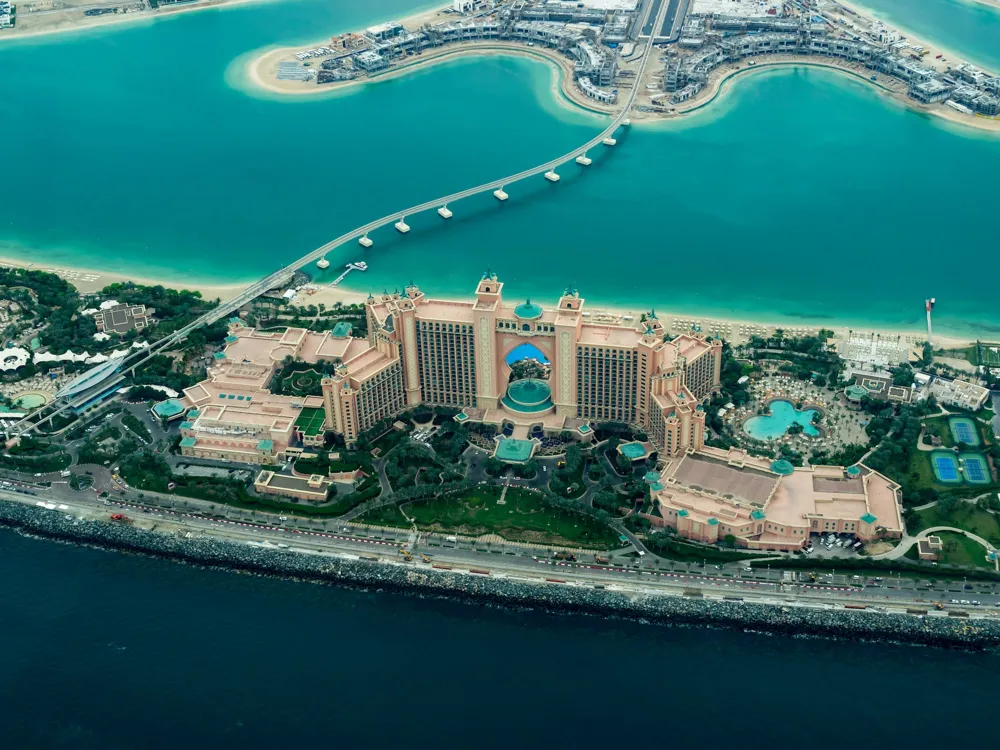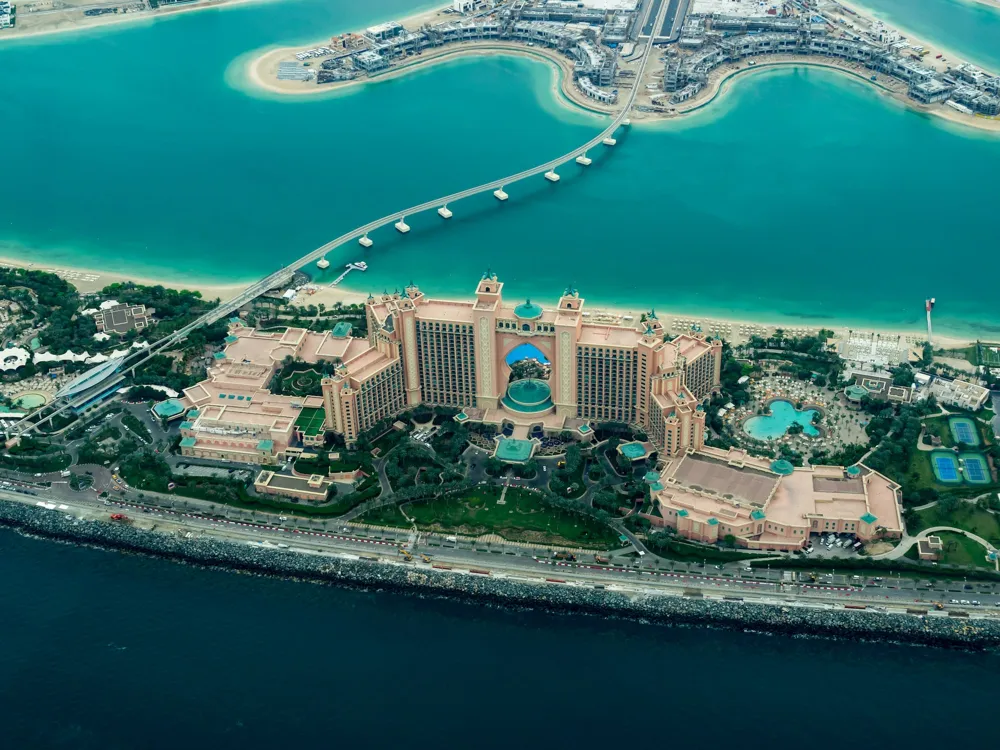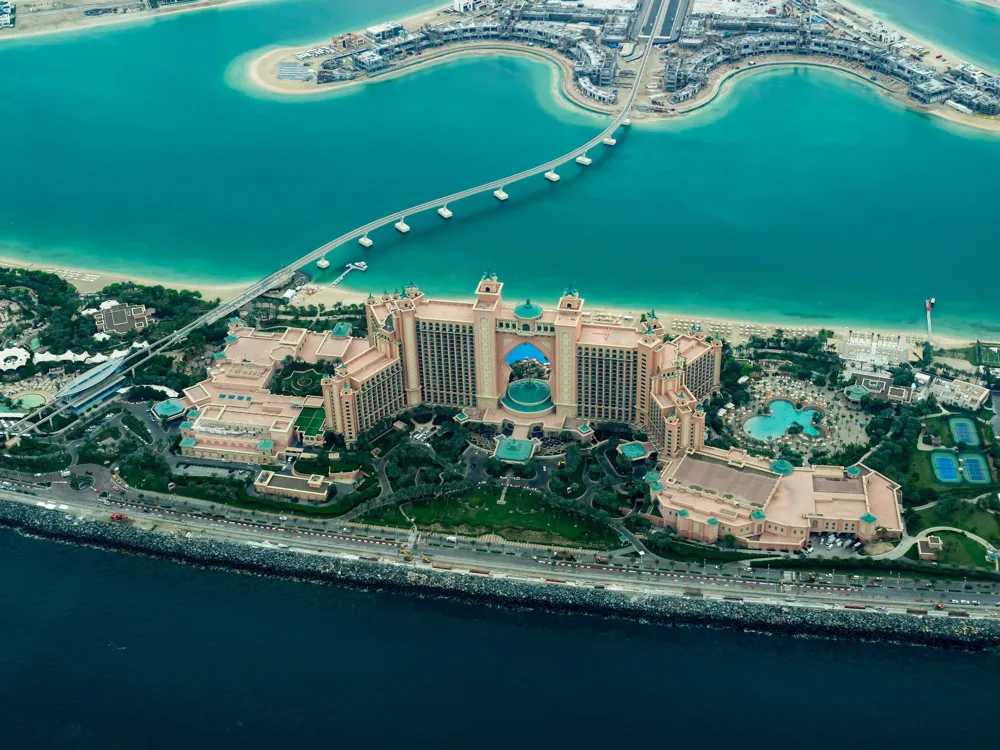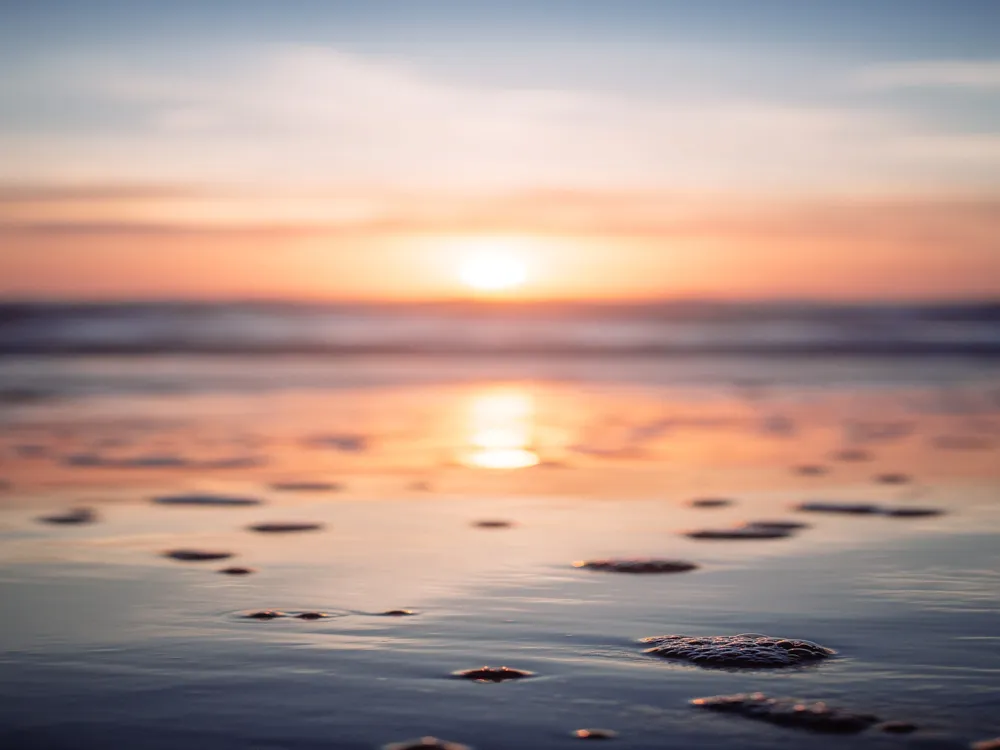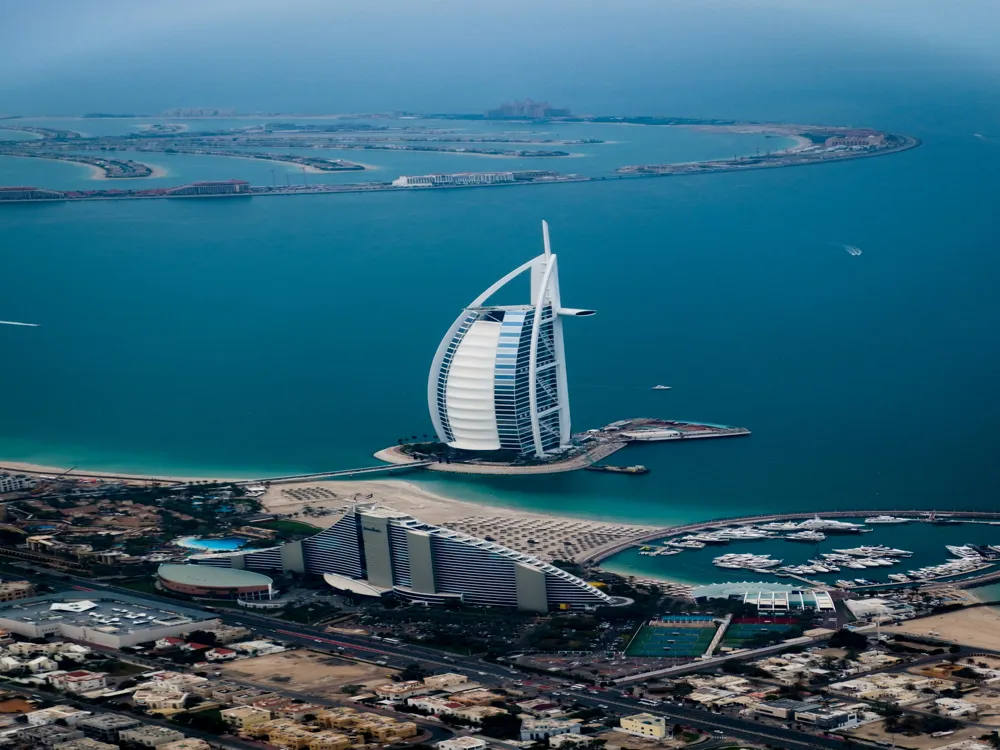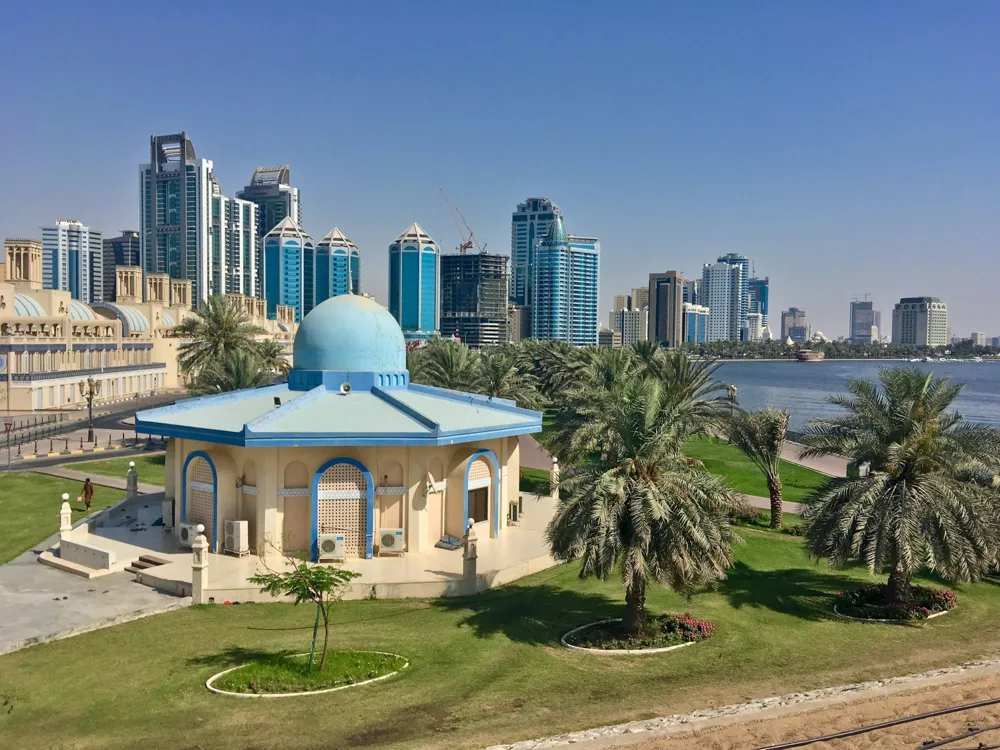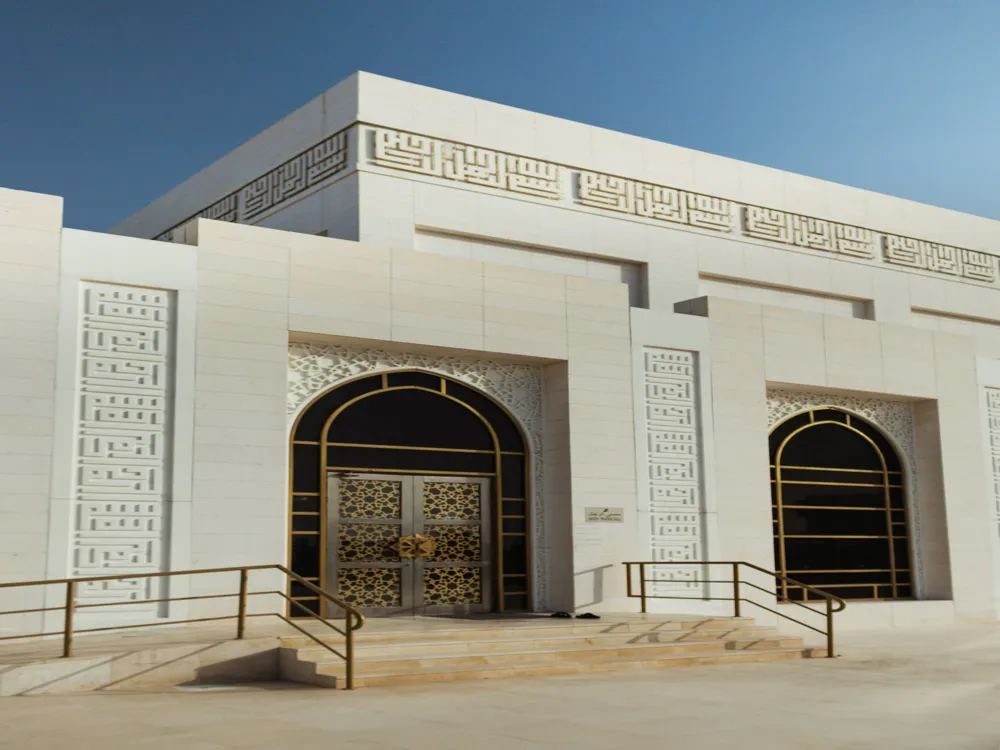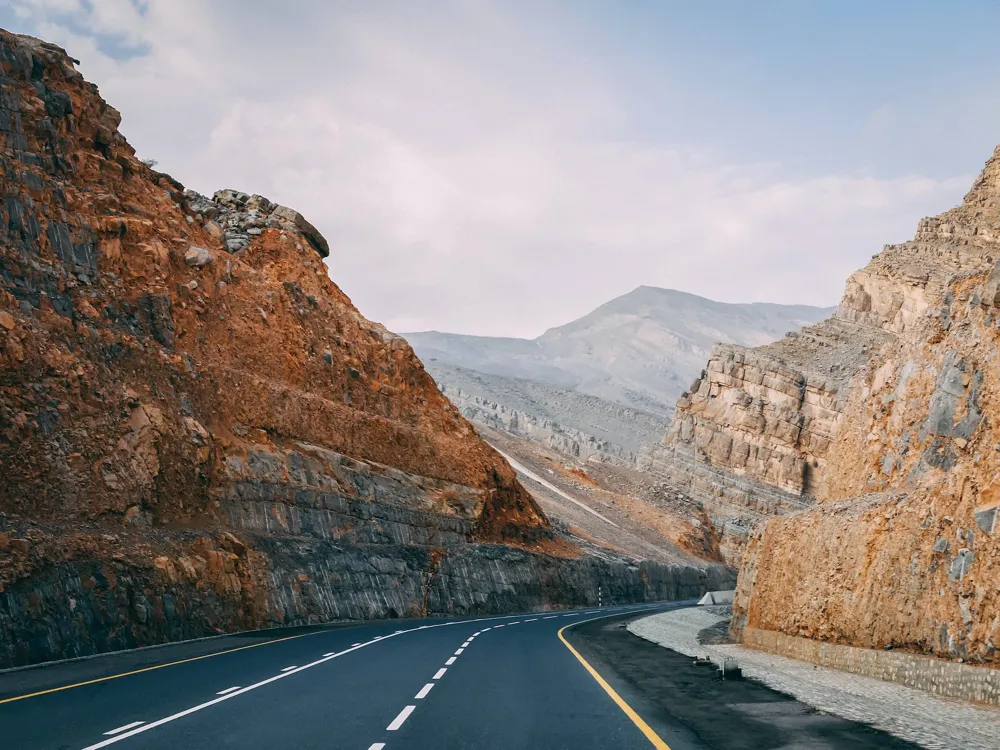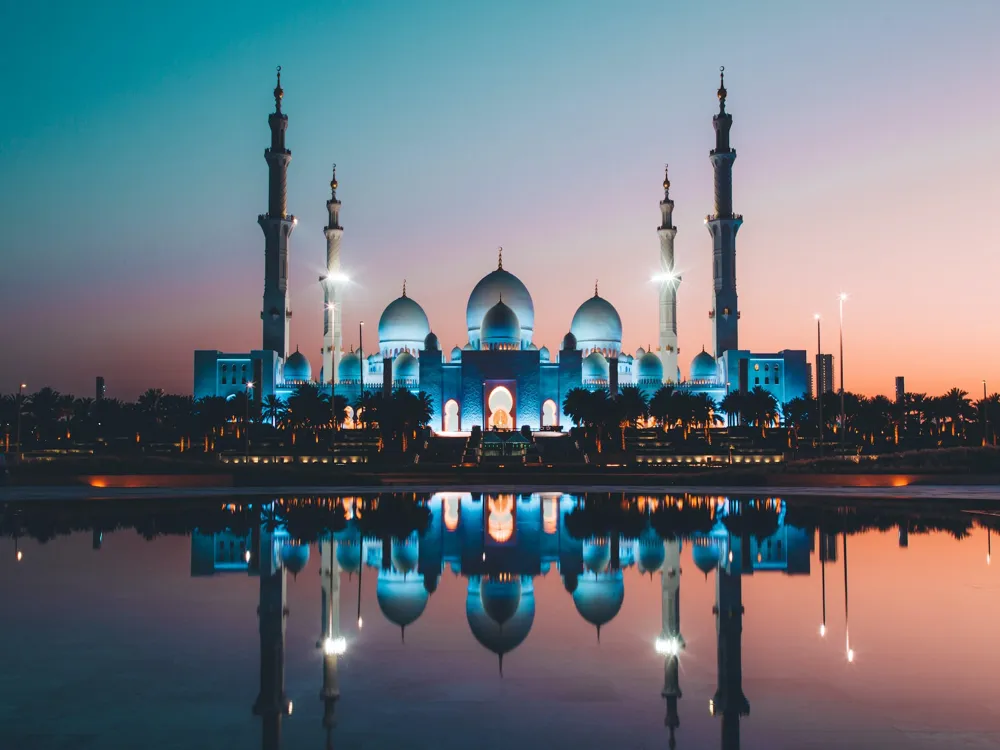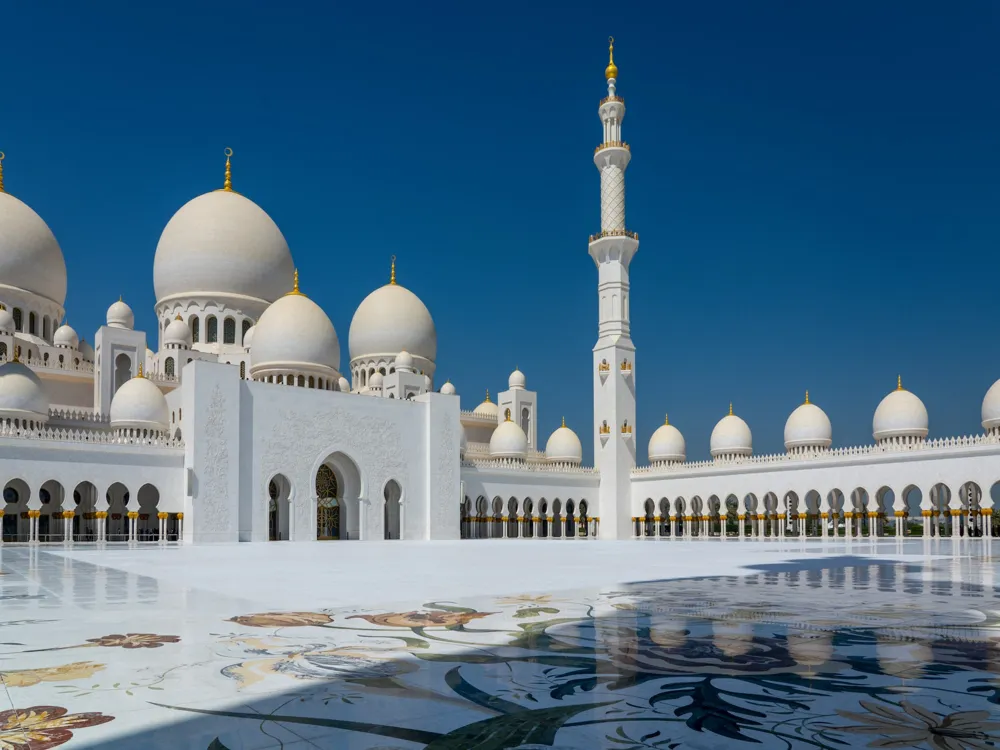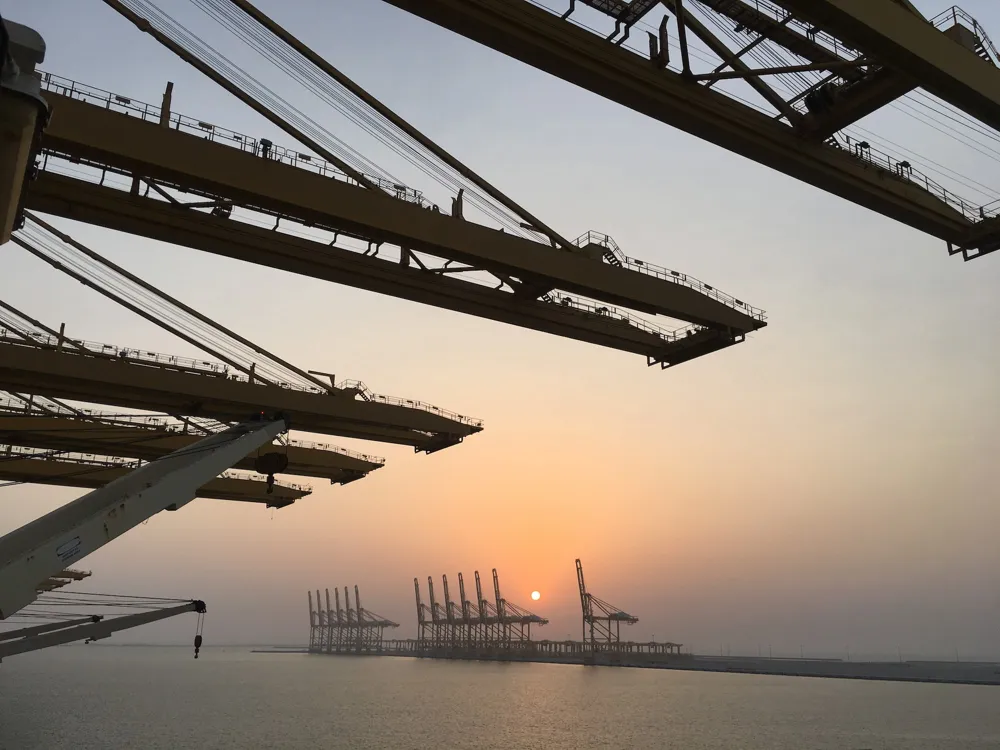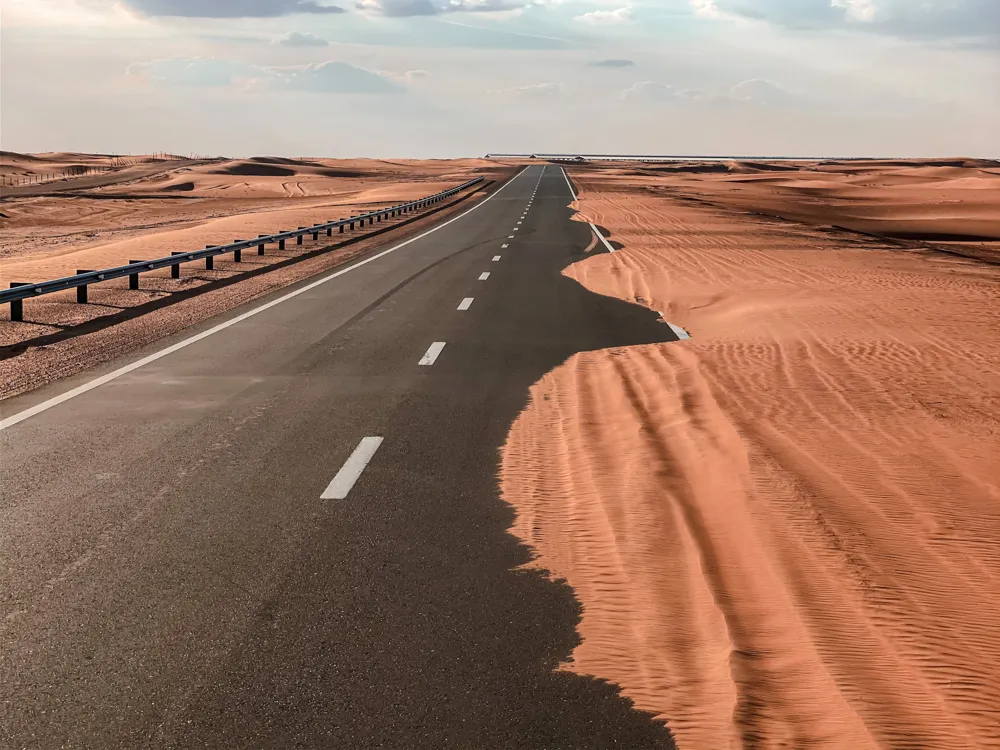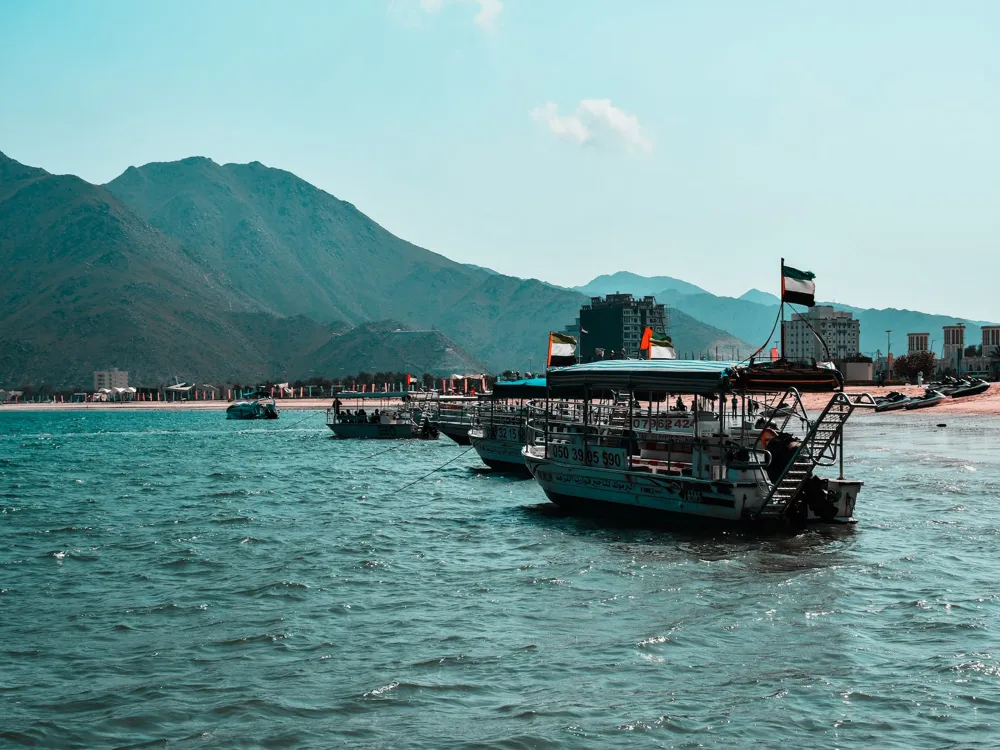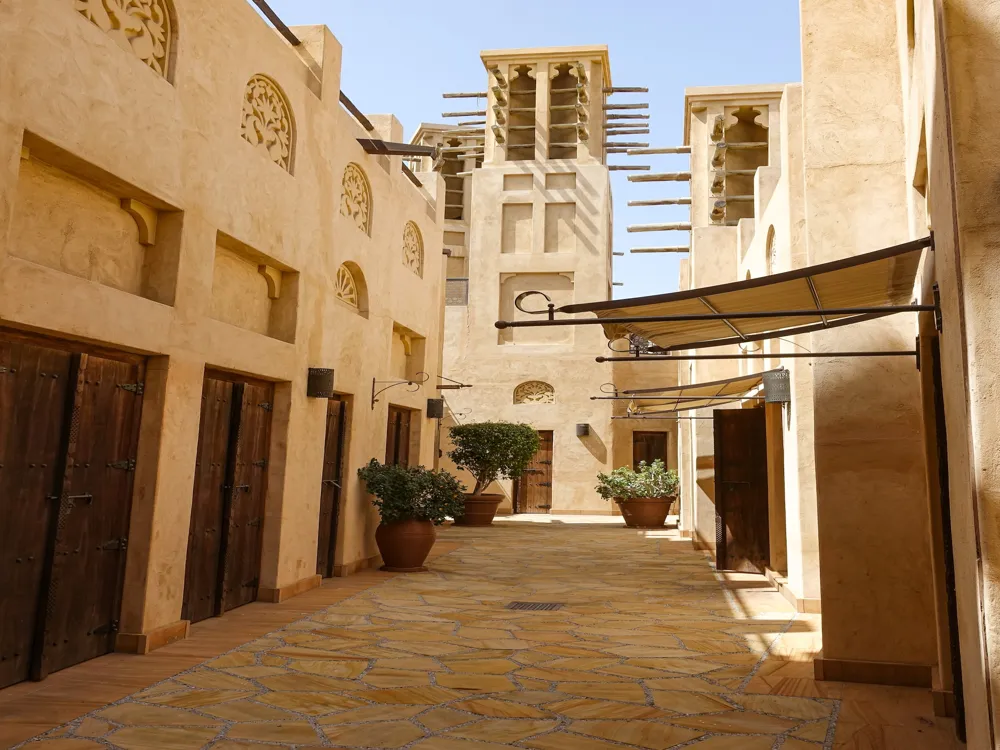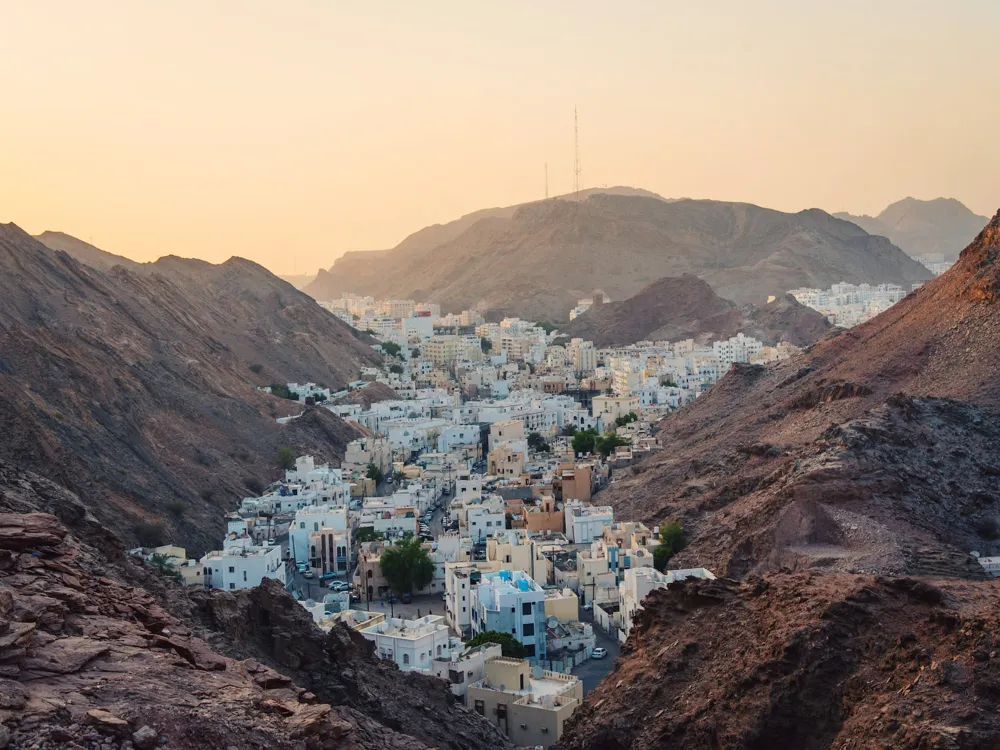Palm Jebel Ali, an iconic landmark in Dubai, is a marvel of engineering and a testament to human ingenuity. Spanning a vast area, it is designed in the shape of a palm tree and is one of the three Palm Islands in Dubai, alongside Palm Jumeirah and Deira Island. This man-made island has been a hub for luxury living, tourism, and leisure, offering a unique blend of modernity and nature. The idea behind Palm Jebel Ali was to boost Dubai's tourism by creating a spectacular space that offers a mix of entertainment, residential, and commercial amenities. The development of Palm Jebel Ali began in 2002, following the success of Palm Jumeirah. It is larger than its predecessor and is intended to house an array of residential properties, hotels, and entertainment venues. One of the island's distinct features is a series of water homes built on stilts that spell out a poem by Dubai's ruler, Sheikh Mohammed bin Rashid Al Maktoum. Palm Jebel Ali's design is not only aesthetically pleasing but also serves a practical purpose. The 'fronds' of the palm offer extensive coastline, maximizing beachfront property space. The surrounding crescent island acts as a breakwater, ensuring calm waters within the palm structure, making it ideal for water sports and beach activities. The development of this island has had a significant impact on Dubai's geography and economy, attracting investors and tourists from around the globe. Despite challenges in its construction, Palm Jebel Ali stands as a symbol of Dubai's ambition and its ability to turn dreams into reality. The project involves dredging sand from the Persian Gulf and spraying it to form the palm shape, a process known as rainbowing. This engineering feat has not only added to Dubai's landmass but also to its allure as a global destination. The architecture of Palm Jebel Ali is a blend of innovative design and engineering marvel. Its palm-tree shape, visible from space, is not just for aesthetic appeal but also for functionality. The 'trunk' of the palm provides a spacious boulevard, housing various commercial and retail outlets. The 'fronds' are lined with luxurious residential villas, each boasting its private beach. The crescent surrounding the palm serves as a luxurious waterfront destination and a protective barrier. At the heart of Palm Jebel Ali's architectural wonder is its sustainability and environmental consideration. The island's development was planned with an emphasis on maintaining marine life and water quality. Specialized construction methods were employed to minimize environmental impact, such as the creation of artificial reefs to support marine life. The residential and commercial structures on Palm Jebel Ali are examples of modern architectural excellence. These buildings are designed to offer luxury while being functional and sustainable. The use of advanced technology in construction and the integration of smart home features reflect the futuristic vision of Dubai. Another striking aspect of Palm Jebel Ali’s architecture is its integration with transportation and infrastructure. The island is connected to the mainland by a series of bridges, ensuring seamless access while preserving the island's aesthetic and functional integrity. The transportation network within the island is meticulously planned to provide convenience while reducing environmental impact. Due to Dubai's hot climate, the best time to visit Palm Jebel Ali is between November and March when the weather is cooler and more pleasant. This period also coincides with various festivals and events in Dubai. Palm Jebel Ali offers a range of accommodation options, from luxurious hotels to private villas. It's advisable to book in advance, especially during peak tourist seasons, to secure the best deals and locations. The island is renowned for its water sports, beach clubs, and fine dining options. Visitors can also explore the water homes and enjoy the scenic views along the crescent. Additionally, there are shopping and entertainment options available. Getting to Palm Jebel Ali is easy with Dubai's well-connected transportation system. Visitors can opt for taxis, buses, or rent a car. Once on the island, there are various modes of transport available, including golf carts and bicycles. Reaching Palm Jebel Ali is convenient due to Dubai's extensive transportation network. The most common way to get there is by road, either by taxi or private vehicle. Visitors can also opt for public buses that have routes connecting to the island. For those seeking a more scenic route, water taxis and ferries offer rides to Palm Jebel Ali, providing a unique perspective of this architectural masterpiece. For international visitors, the nearest airport is Dubai International Airport. From the airport, Palm Jebel Ali is accessible via Sheikh Zayed Road, one of the main highways in Dubai. The journey typically takes around 30-40 minutes, depending on traffic conditions.Overview of Palm Jebel Ali in Dubai
Architecture of Palm Jebel Ali
Tips When Visiting Palm Jebel Ali
Best Time to Visit
Accommodation Choices
Activities and Attractions
Transportation and Getting Around
How To Reach Palm Jebel Ali
Palm Jebel Ali
Dubai
₹ 17,999 onwards
View dubai Packages
Weather :
Tags : Island
Time Required : 1-2 hours
Entry Fee : Free
Planning a Trip? Ask Your Question
Dubai Travel Packages
View All Packages For Dubai
Top Hotel Collections for Dubai

Private Pool

Luxury Hotels

5-Star Hotels

Pet Friendly
Top Hotels Near Dubai
Other Top Ranking Places In Dubai
View All Places To Visit In dubai
View dubai Packages
Weather :
Tags : Island
Time Required : 1-2 hours
Entry Fee : Free
Planning a Trip? Ask Your Question
Dubai Travel Packages
View All Packages For Dubai
Top Hotel Collections for Dubai

Private Pool

Luxury Hotels

5-Star Hotels

Pet Friendly







